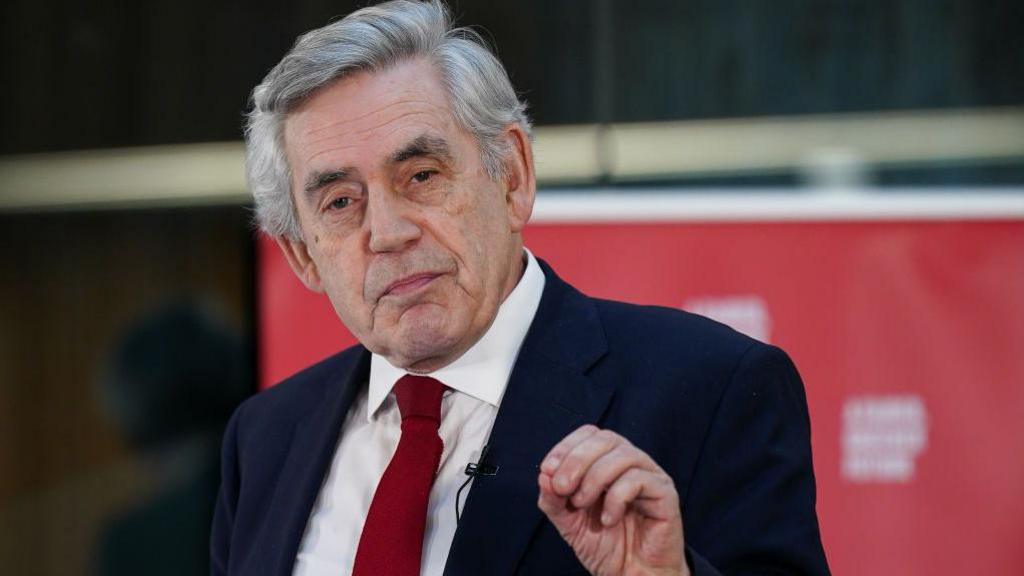Scottish Budget set to pass with Labour abstaining
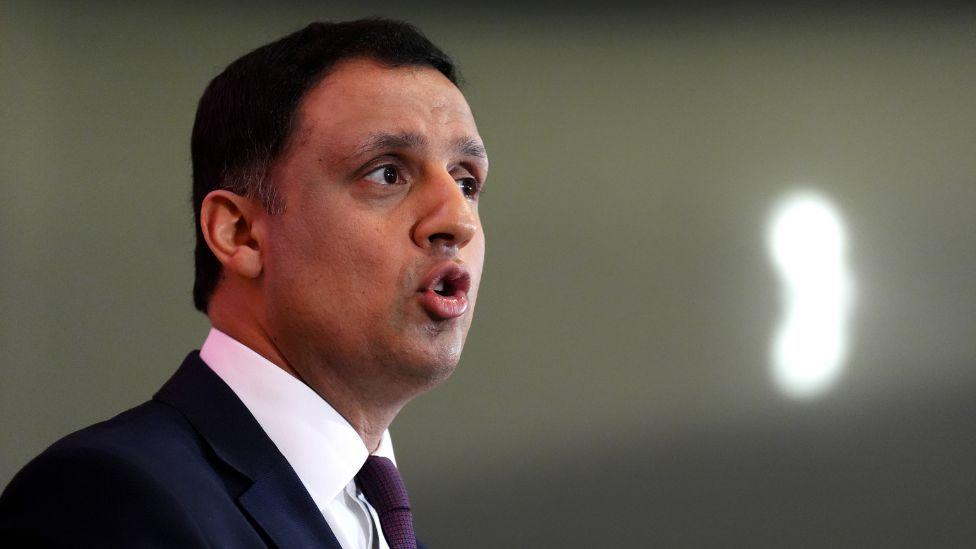
Anas Sarwar says Scottish Labour will not vote the Budget down
- Published
The Scottish government's Budget looks set to pass after Labour leader Anas Sarwar said his party would abstain from the Holyrood vote.
The minority SNP administration will require the help of at least one other party to see its proposals become law when MSPs have their say on the bill next month.
First Minister John Swinney has warned opposition parties of dire financial and political consequences if his tax and spending plans are blocked.
Sarwar said Labour MSPs would abstain from the vote, which would ensure the government had the votes it needs.
The Scottish Labour leader claimed another opposition party had already agreed to either vote for or abstain from the Budget ballot to ensure it passes.
He told BBC Radio's Good Morning Scotland: "We, at this current stage, will abstain from this budget, because this budget is going to pass anyway.
"It has the votes for the another political party, at least one of the opposition political parties, so we are not going to vote against this budget."
What just happened with the Scottish Budget?
He said Labour would vote for the bill if ministers accelerated plans to effectively scrap the two-child cap on access to benefits.
The Scottish government is planning to do this in 2026, arguing that it will need time and the cooperation of the UK Department of Work and Pensions (DWP) to administer the change.
BBC Scotland News understands the DWP has confirmed it will provide Holyrood ministers with data on the benefits cap, and that the UK work and pensions secretary has told officials to work constructively with Scottish government.
Sarwar urged the government to "stop pretending" the Budget contains plans to end the cap.
"If they actually put the ending of the two-child benefit cap into this budget and lift it on the first of April, we will vote for the budget," he said.
"We would have voted for the budget if we thought there's a new direction that's not coming," the Scottish Labour leader added.
He also called for the government to replicate business rates relief provided to firms south of the border, and to bolster plans to clear NHS backlogs.
SNP government vows to scrap two-child benefit cap
- Published4 December 2024
The two-child benefits cap was originally introduced in 2017 by the UK Conservative government.
It has been kept in place by Sir Keir Starmer's Labour administration. The prime minister has said he is opposed to the measure, but insisted the UK government could not yet afford to end it.
The policy prevents parents from claiming universal credit or child tax credit for more than two children, with a few exemptions.
The Scottish government said in the Budget announcement that it aimed to provide funding to families affected by the policy by April 2026, or earlier if possible.
Ministers did not commit funds to the pledge, other than £3m in set-up costs. They also did not specify what mechanism would be used to mitigate the cap.
The Scottish Fiscal Commission (SFC) forecasts, external the mitigation would cost £155m in 2026-27, rising to almost £200m by 2029-30.
The official watchdog estimates it could provide extra benefits for 42,000 children next year, rising to 49,000 by the end of the decade.
It notes funding for the policy would not be provided by the Treasury and would have to be found from elsewhere - either higher taxes or cuts to spending on public services.
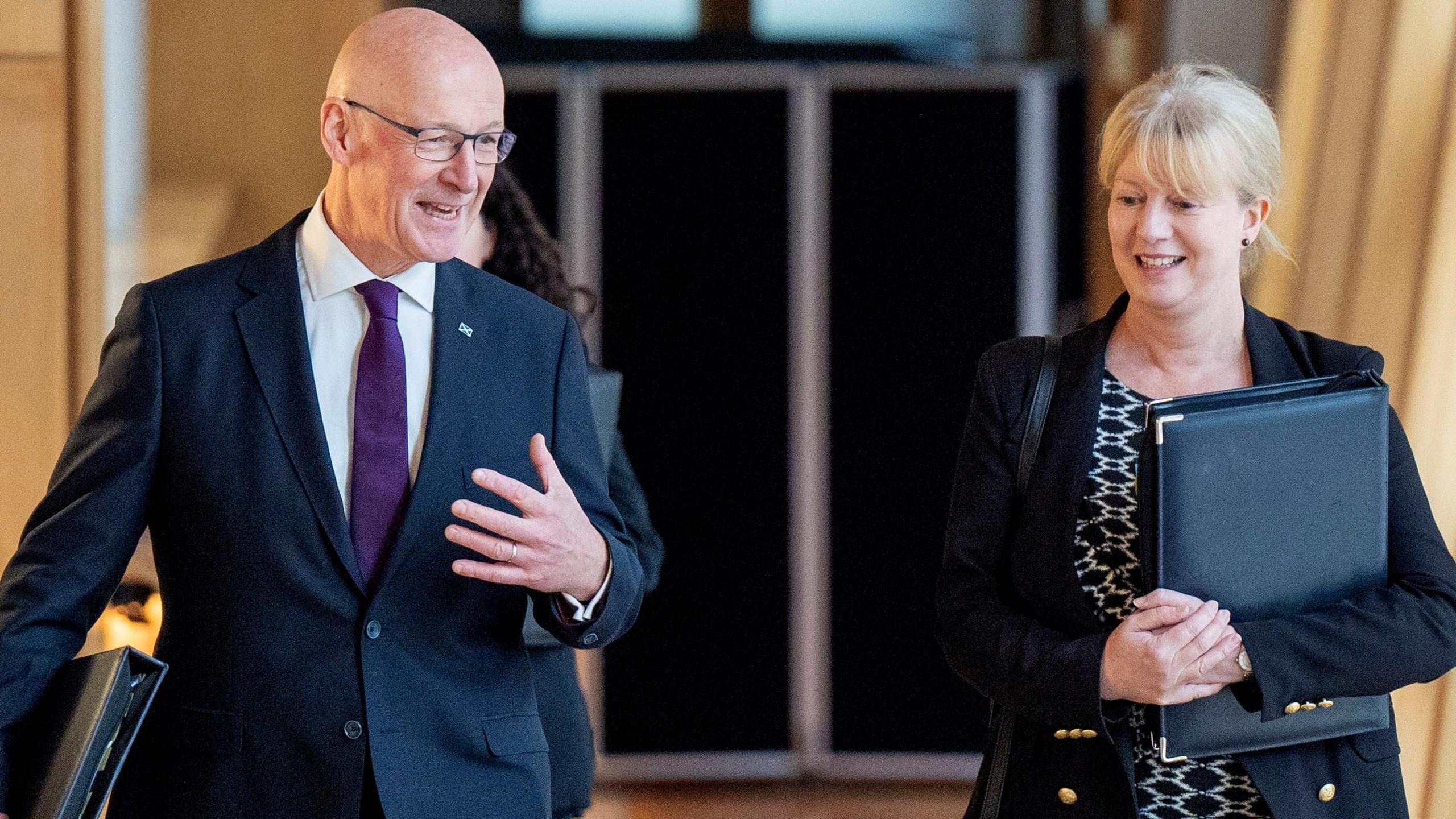
John Swinney claims passing the Budget will help thwart populists
In a speech on Monday, Swinney warned opposition MSPs that if they fail to back his Budget it will play "right into the hands of Elon Musk and other populists".
He said voting down his tax and spending plans would be "at the expense" of Scotland's NHS, pensioners and children in poverty.
Finance Secretary Shona Robison said: "Mr Sarwar has said that Scotland needs change – but he seems to have reflected over the holidays and decided that it is he who needs to change."
She added Scots would "never forgive" Labour if the party's MSPs did not back provisions in the Budget to reintroduce a universal winter fuel payment and effectively scrap the two-child benefits cap.
MSPs are due to have their say on the budget next month, with a final vote provisionally scheduled for 25 February.
The SNP currently has 62 MSPs out of 129, short of the 65 it would need if all opposition parties sided against it.
However, if Labour's 22 MSPs abstain, the government could pass the Budget even if all other opposition parties voted it down.
Scottish Conservative finance spokesperson Craig Hoy said: "Scottish Labour and its weak leadership are so disconnected from the Scottish people and communities that they are unwilling to vote against an SNP budget that once again fails to do anything to address their failures over the last 18 years."

Labour's announcement that it will abstain on the Budget removes all jeopardy from the budget debate.
The budget bill will pass if Labour MSPs sit on their hands. So why make that clear at this stage in the process?
Many SNP ministers in recent weeks have warned of dire consequences if the Budget doesn't pass.
The first minister highlighted the "real damage" that could be caused to the NHS if opposition parties don't support the tax and spending plans.
So perhaps Labour has decided to neutralise that line of attack in an attempt to get the focus back on delivery rather than on parliamentary process.
- Published6 January
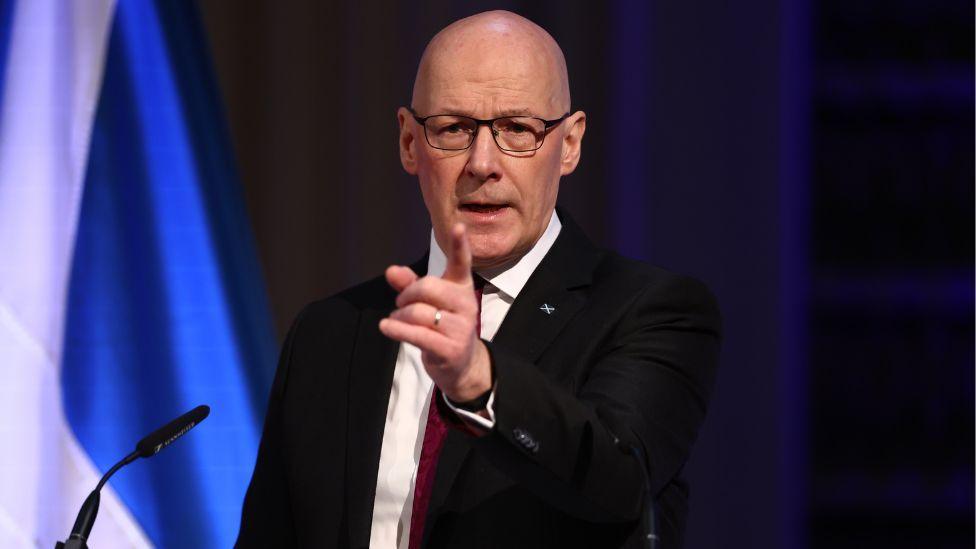
- Published4 December 2024
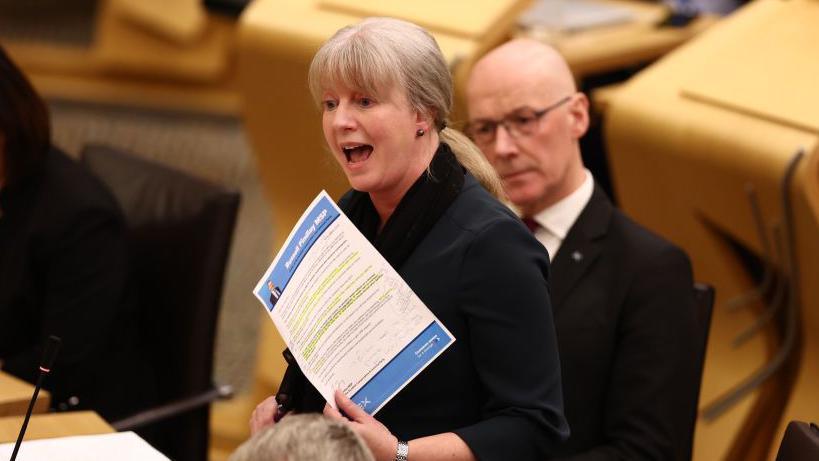
- Published7 January
